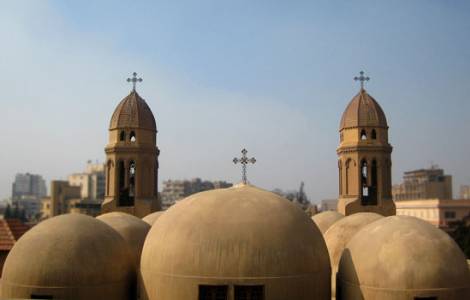
Cairo (Agenzia Fides) - The Egyptian government recently issued a new decree in which it recognizes the full compliance of another 45 churches and 55 adjoining buildings, with the provisions governing the construction of Christian places of worship.
This increases the number of churches and ecclesiastical buildings that have been built without the necessary permits since the process of "legalizing" churches in the past to a total of 1738.
The frequency of the meetings of the competent authorities that approve the procedures that confirm full compliance of the Christian churches with the norms for the construction of such buildings demonstrates the determination with which the Egyptian authorities carry out the project of regularization of the churches built in the past without the required permissions.
The review and legalization process began with the adoption of the new law on the construction and management of places of worship, which was ratified by the Egyptian parliament on August 30, 2016. Since then, the responsible government committee has met 17 times and at each meeting further permits have been issued to legalize churches and ecclesiastical buildings that have so far been viewed as illegal in whole or in part from a legal point of view.
In the past few decades, many churches and chapels have been built spontaneously throughout Egypt without any required permits. Even today, these buildings, erected by local Christian communities without legal permission, are from time to time used by Islamist groups as a pretext for sectarian violence.
The law on places of worship of August 2016 represented an objective step forward for the Egyptian Christian communities compared to the so-called "10 rules" added in 1934 to the Ottoman legislation by the Ministry of the Interior, which prohibited, among other things, the construction of new churches close to schools, canals, government buildings, railways and residential areas. In many cases, the strict application of these rules had prevented the construction of churches in cities and towns inhabited by Christians, particularly in rural areas of Upper Egypt. (GV) (Agenzia Fides, 20/10/2020)

 ASIA/SYRIA - Sectarian massacres: Patriarchs of the Churches call for an end to the logic of revenge
ASIA/SYRIA - Sectarian massacres: Patriarchs of the Churches call for an end to the logic of revenge